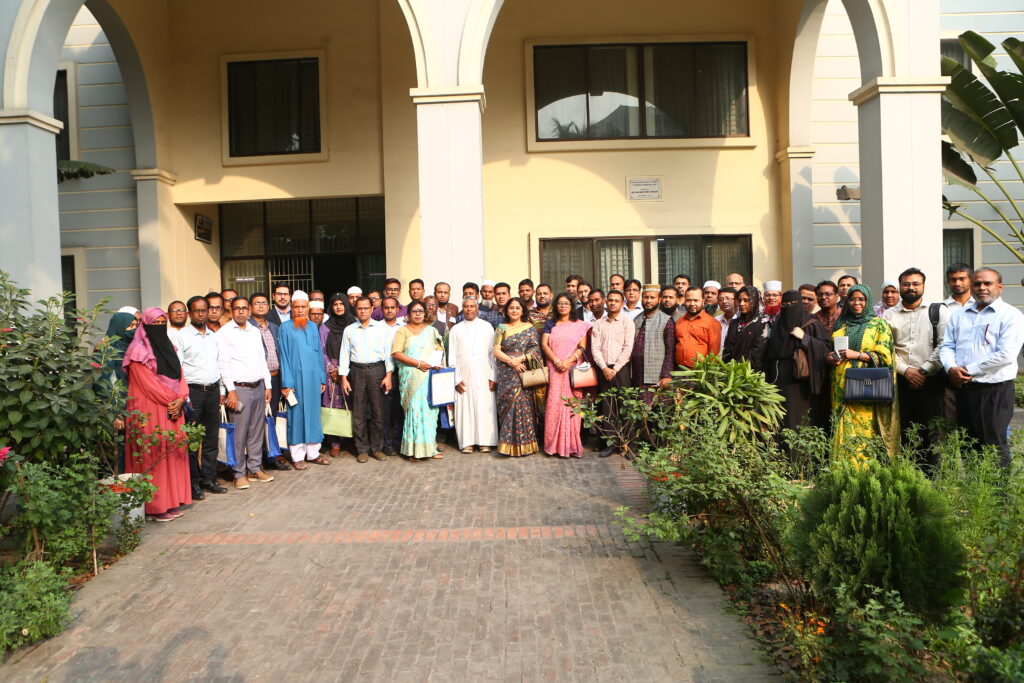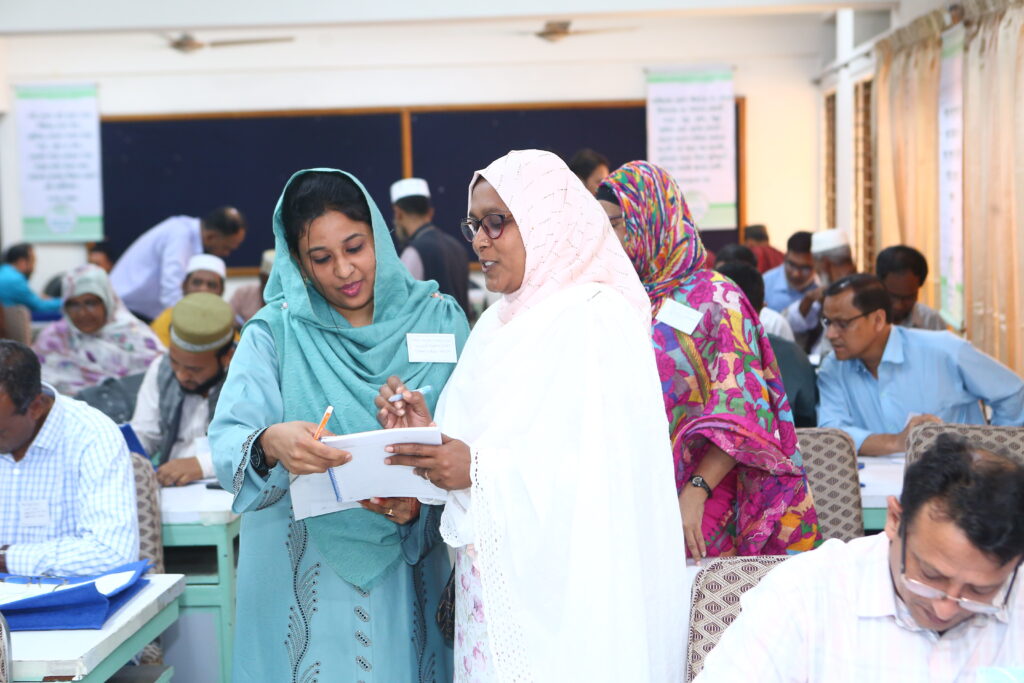
From February 23 to 27, a major step forward was taken in the expansion of ethics education in Bangladesh with the successful completion of the second National Training of Teachers in Dhaka. Organized as part of the Ethics Education Fellowship Program, the five-day immersive workshop brought together 48 teachers from 16 general schools and 8 madrasas, strengthening their capacity to introduce ethics education in their classrooms.
These newly trained educators build on the foundation laid during the program’s first phase, where 20 teachers were trained and are still actively engaged, implementing ethics education activities with their students. With the addition of this new cohort, the program continues to grow in reach and impact. The second phase alone aims to engage 480 new learners, complementing the 200 children reached during the initial phase.
Additionally, more than 21,000 teachers will participate in a 6-hour online learning module as part of a program funded by the World Bank.
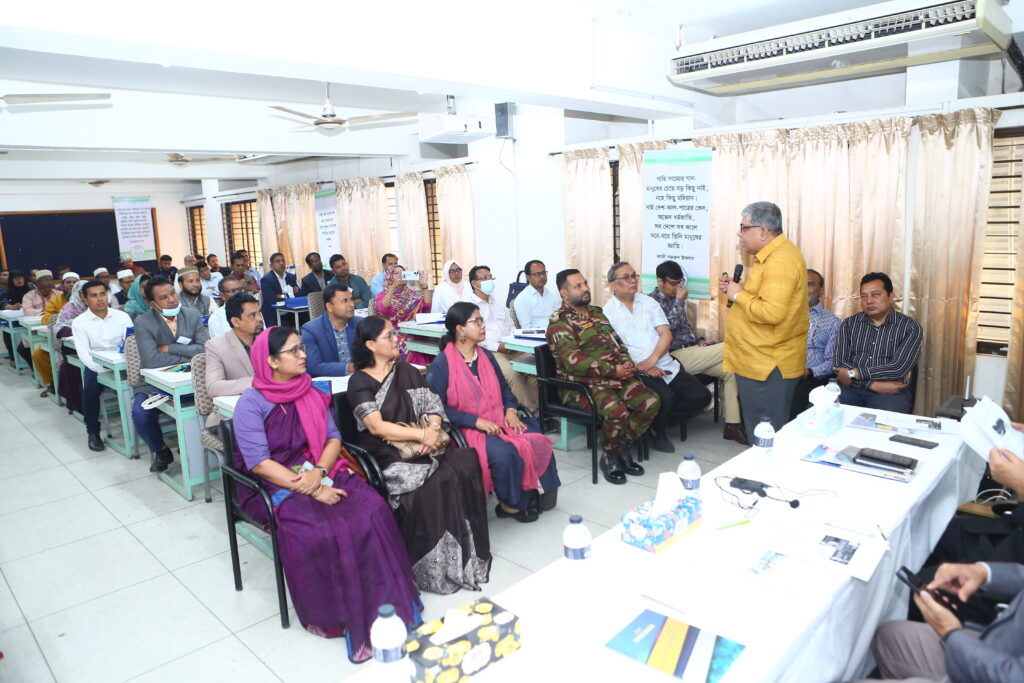
The training was facilitated by a dedicated team of Ethics Education Fellows, who are leading the implementation of the program in the country: Ms. Geetanjali Barua, Mr. Shafiul Alam, Lt. Col. Zonayed Ahmed, and Mr. Joydip Dey.
Throughout the week, participants engaged in dynamic and interactive sessions that focused on designing and facilitating ethics education sessions, applying transformative pedagogical approaches, and creating safe spaces for dialogue. The aim was to strengthen teachers’ capacities to empower students in navigating ethical challenges with confidence, empathy, and understanding.
A highlight of the training was an interfaith learning experience that allowed educators to reflect on ethical values from diverse religious perspectives. At St. Mary’s Cathedral, participants engaged in dialogue with Archbishop Bejoy Nicephorus D’Cruze, exploring key pillars of the Catholic faith, including the Golden Rule: “Do unto others as you would have them do unto you.” They also visited the Ramakrishna Mission in Dhaka, where they delved into the Hindu perspective on interconnectedness and the teacher’s role as a guide who helps remove barriers to learning.
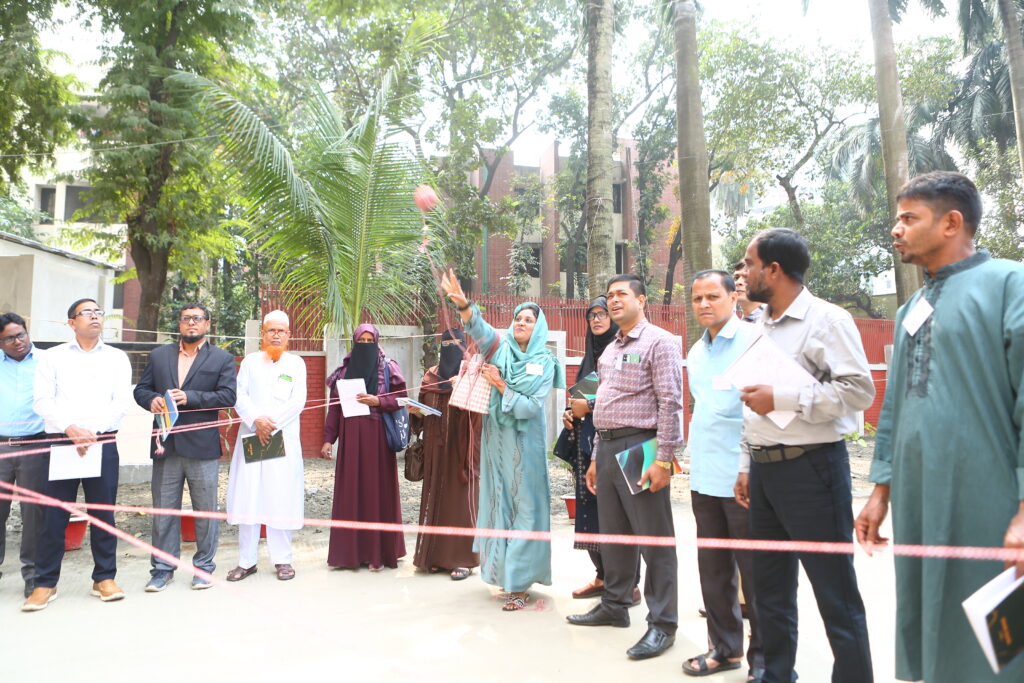
Reflecting on the experience, one participant shared, “I am very happy that a beautiful journey has begun. Just as I will benefit from the learning outcomes of the Ethics Education Training, my students will also be enlightened. I hope that together we will ignite the light in our hearts, and that light will illuminate the world.”
In parallel with the training, Mr. Francisco Vila, Head of Programmes at Arigatou International Geneva, met with several key education leaders to explore the future of ethics education in the country. His meetings with Mr. Hasan Maruf, Additional Secretary for Development at the Ministry of Education; Dr. Muhammad Azad Khan, Director General of the Directorate of Secondary and Higher Education; and Dr. Shafiul Azam, Director of Planning and Development, focused on reviewing the achievements of the first phase of the Fellowship and identifying advocacy opportunities to integrate ethics education into national policy.
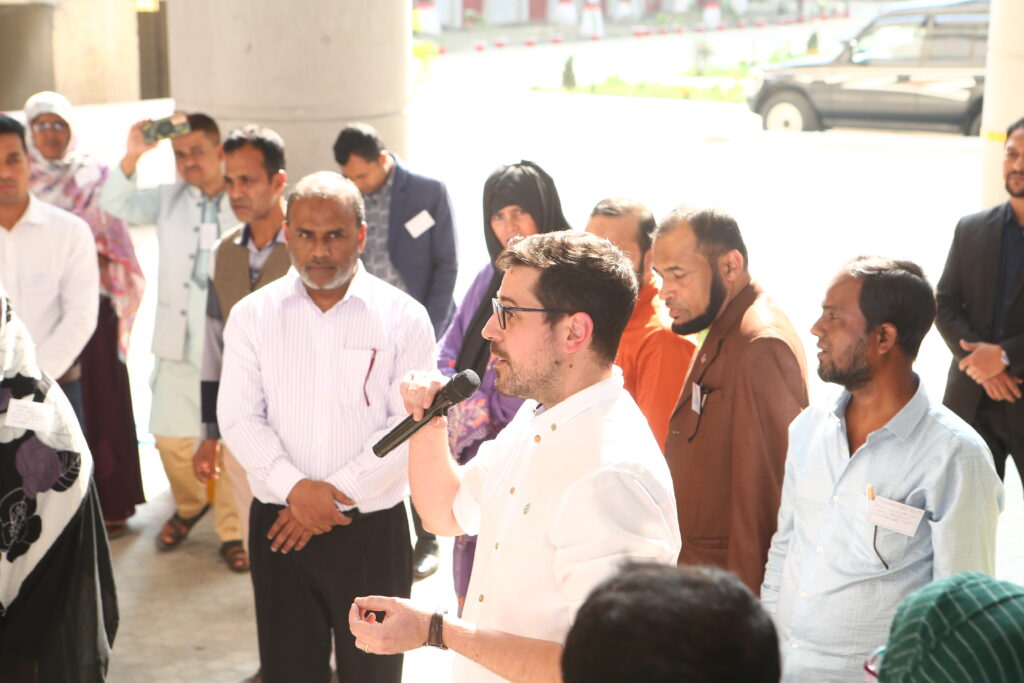
Further discussions with Mr. Abdul Mannan, Director General of the Madrasah Education Directorate, highlighted the deep connection between religious education and ethical practice, and the potential of this program to translate values into concrete action. At the National Academy for Educational Management (NAEM), Director General Dr. Md. Zulfewar Haider and Director of Training Prof. Ferdousi Begum explored ways to integrate ethics education into leadership development for headteachers and proposed new training for Academy staff to incorporate ethics into their existing programs. Meanwhile, Prof. Rejiya Sultana, Principal of the Government Teachers Training College in Dhaka, hosted Mr. Vila on campus and expressed strong interest in embedding ethics education into national teacher training programs.
We thank the Ministry of Education of Bangladesh for its commitment, the participating teachers for their dedication, and the Ethics Education Fellows for their leadership. Together, they are paving the way for more inclusive education in Bangladesh—one that nurtures respectful relationships, encourages dialogue, and empowers children to make a positive impact in their communities.
